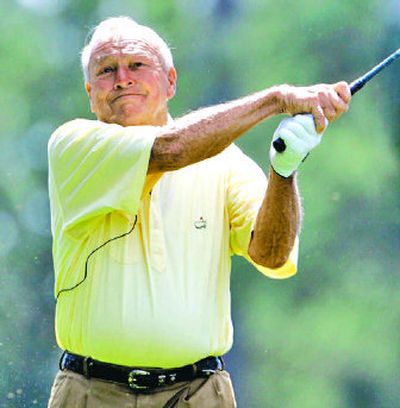Foreigners fail Masters test

AUGUSTA, Ga. – Way before the Ryder Cup became such a one-sided affair, international players – Europeans all – stepped forth in succession to slip on a Masters green jacket.
Eleven in the 1980s and 1990s, including seven champions in nine years, did so at a time when golf and the biennial team event played since 1927 was dominated by the Americans. You might remember the names: Ballesteros, Langer, Faldo, Woosnam, Lyle, Olazabal.
So now that Europe owns the Ryder Cup, now that international players proliferate the world golf rankings and outnumber Americans at this week’s Masters for the first time in the tournament’s 71-year history, you might wonder when a European will win again. Or when an Australian will win for the first time.
Or if?
“It’s a little bit strange, isn’t it?” said Australian Geoff Ogilvy, winner of last summer’s U.S. Open. “One of those unexplainables, probably.”
Not really.
Olazabal was the last European to win a green jacket, in 1999. Only two other international players – Vijay Singh in 2000 and Mike Weir in 2003 (he’s from Canada, so he doesn’t really count) – have won since then for reasons that partly can be explained with three simple words:
Tiger and Phil.
Together, America’s best – Woods and Mickelson, both long hitters with fabulous short games – have won five of the past six Masters.
“They have just got it figured out,” said Australian Adam Scott, a winner last week on the PGA Tour and third in the world golf rankings behind Woods and Jim Furyk.
There are 50 international players in this year’s field.
No European has collected an American major title other than the Masters since Tony Jacklin won the 1970 U.S. Open. “It’s like breaking the 4-minute mile,” Irishman Padraig Harrington said. “Once one person does it, everybody will be able to do it. I think there is a little bit of a push needed. If I’m not going to win, I’m certainly rooting for one of my fellow Europeans to win.”
Australian Greg Norman finished Masters runner-up three times. He’s inspired a new generation of Aussie players. Six of those Australians are among the world’s top 26 rated players and three are in their 20s: Scott, Ogilvy and Aaron Baddeley.
Aussies have won each of the other three majors at least twice, but not one has won the Masters.
“It’s actually not a drought because it’s never rained at all,” Ogilvy said. “Just like every other tournament in the world at the moment, Australians are more likely to win one now than they were five years ago because there are more in the field and more good players. There’s five or six Australians that I could see legitimately wearing a green jacket on Sunday, and that’s more than ever before. … Every year the chances go up that the drought will be broken.”
Harrington knows this, whether the player be European or Australian.
“I don’t think any player is going to come down the stretch trying to win it for Europe,” he said.
Another player told Harrington late last season that he’d like to be the first European to win a major in 2007.
“I said, ‘I’ll be the fourth European to win a major in 2007; I’ll be quite happy,’ ” he said. “Make no difference who breaks it when it happens.”